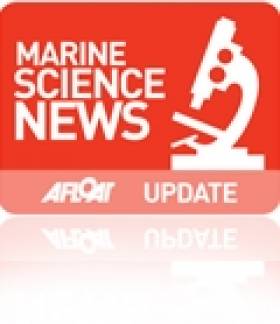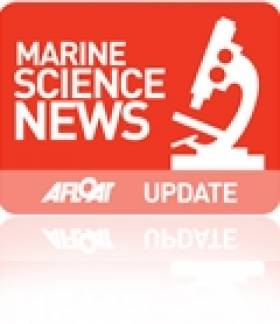Displaying items by tag: ESOF
Research Vessels Call to Dublin Bay Ports
#SCIENCE SHIPS – It is a rare to have both Marine Institute research vessels calling at the same time to east-coast ports, as normally these Galway-based ships managed by P&O Maritime Services, work off the rest of the Irish coast, writes Jehan Ashmore.
As previously reported on Aflaot.ie, the RV Celtic Explorer docked in Dublin Port earlier this week. The 65.5m long vessel currently remains moored alongside Sir John Rogersons Quay (berth 6) as the 10-day Euroscience Open Forum 2012 (ESOF) concludes tomorrow in the Convention Centre. High-level delegates from the international scientific community have made the short crossing over the Liffey's Samuel Beckett Bridge to be welcomed on board.
Across Dublin Bay the RV Celtic Voyager had called to Dun Laoghaire Harbour yesterday, where she stayed overnight for a mid-scientific cruise break, while berthed at St. Michaels Wharf. The 31.4m vessel this morning resumed her scheduled Infomar 2 hydrographic work in the Irish Sea.
RV Celtic Explorer to Visit ESOF 2012
#ESOF IN DUBLIN - The Euroscience Open Forum 2012 (ESOF) is to take place in the Convention Centre in Dublin from tomorrow until next Sunday. As part of the key conference, the Marine Institute's RV Celtic Explorer which docked in the centre of the port today, is expected to relocate berths later in the week for visiting high-level delegates, writes Jehan Ashmore.
The forum is billed as Europe's largest general science conference and the capital was chosen to host the Dublin 'City of Science 2012' festival which is year-long celebration of science. The prestigious international event features over 160 events that will showcase the best of Irish culture, arts and science.
Added to this is a 'Science in the City' festival (6-15th July) which is currently well-under way, for further information visit www.dublinscience2012.ie

























































